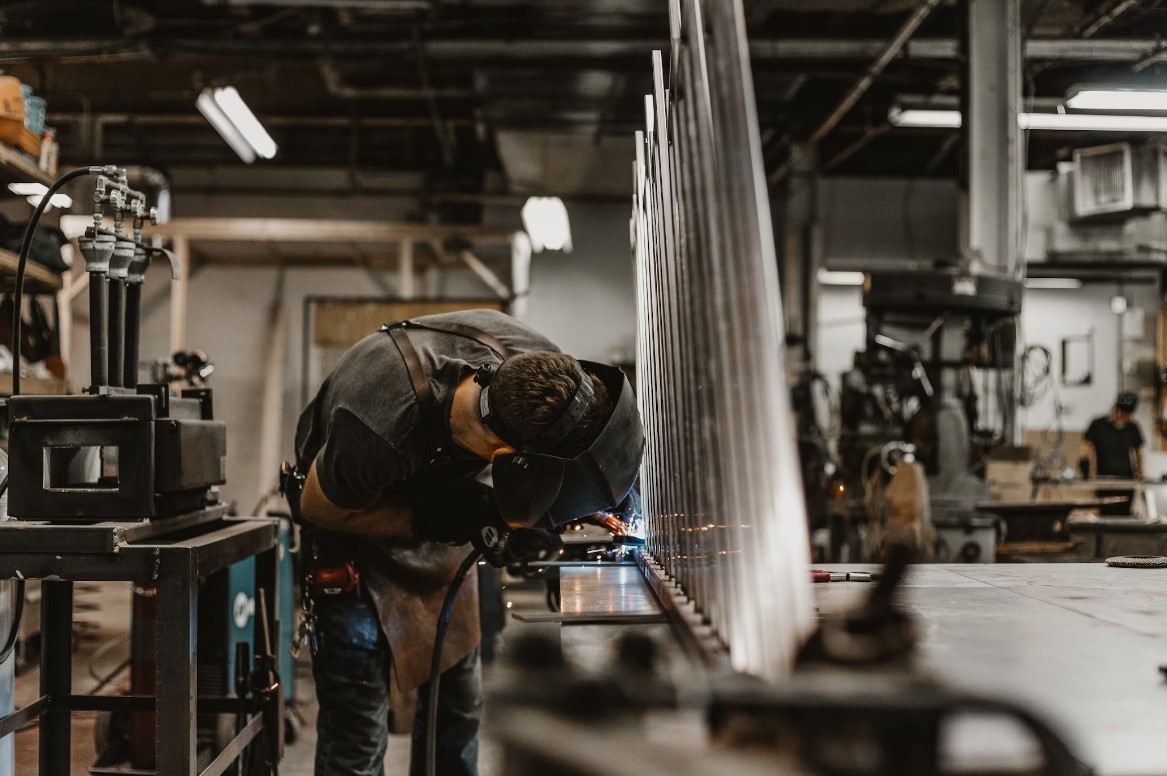
Manufacturing Agreement: Essential Terms To Include

As a business owner, the excitement of seeing your vision materialise into tangible products is exhilirating. However, in manufacturing, where intricate processes and potential challenges abound, having a solid foundation is paramount.
This is where a well-drafted manufacturing agreement comes into play – a document that not only safeguards your interests but also acts as a blueprint for a thriving partnership. On this page, we’ll delve into what a manufacturing agreement is and the the pivotal role it plays.
Need a tailored manufacturing agreement?
We draft manufacturing agreements for a fixed fee starting from $1,400 + GST, tailored to your business’ needs. Your manufacturing agreement will be drafted by a qualified commercial lawyer.
REQUEST OUR ADVICEWhat is a manufacturing agreement?
A manufacturing agreement is a legally binding document that outlines the terms and conditions governing the production of goods by a manufacturer for a business.
This contract details crucial aspects such as delivery terms, product warranties, handling of defective products, intellectual property protection and more, all of which we’ll get into later on.
Why is a manufacturing agreement so important?
Whether you’re considering a local manufacturer in Australia or venturing overseas, having a well-drafted manufacturing agreement is crucial. In essence, it serves as the blueprint for a seamless manufacturing process, offering a safety net of legally enforceable options should any hiccups occur.
Imagine discovering a batch of faulty products – a scenario no entrepreneur wants to face. This is where a meticulously drafted manufacturing agreement becomes so important. It explicitly outlines your entitlements in such situations, ensuring that defective products can be fixed, replaced, or refunded by the manufacturer. Without this clarity in black-and-white, navigating such challenges can be murky.
Essential tips to choosing the right manufacturer
Selecting the ideal manufacturer for your business is a critical decision that demands careful consideration. Much like engaging any service provider, conducting thorough due diligence ensures you partner with a reputable, suitable, and reliable manufacturer, particularly as this collaboration may extend indefinitely if all goes well.
Here are some key factors to consider when in search of the perfect manufacturer:
1. Gather Multiple References
Reach out to various references who can share their firsthand experiences with the manufacturer. Inquire about the quality of products produced, the manufacturer’s responsiveness, and their approach to handling any challenges that may arise.
Engage in detailed conversations and pose the essential “20 questions” to leave no stone unturned in ensuring suitability before making a substantial financial commitment. Learning from others’ experiences can save you from the unfortunate scenario of investing heavily in a manufacturer that fails to deliver on promises.
2. Evaluate Fees
Compare the fees proposed by the manufacturer with those of other industry players. Ensuring their pricing is reasonable and competitive is crucial for your business’s financial health.
3. Request Samples
Prioritise the creation of product samples. This trial phase allows you to assess whether the manufacturer can meet your specifications and satisfaction. In essence, it’s a “try before you buy” strategy that minimises the risk of committing to a significant investment without ensuring the product aligns with your expectations.
By considering these factors, you not only mitigate potential risks but also lay the foundation for a successful and enduring partnership with a manufacturer aligned with your business needs.
What are the key terms to include in a manufacturing agreement?
Drafting a comprehensive manufacturing agreement is essential for a smooth and secure business relationship. Here’s a breakdown of key components that should be covered:
1. Delivery Terms
Outline the specifics of product delivery, addressing crucial factors like booking arrangements, cost responsibilities (including taxes, insurance, and freight handling), and the option to nominate a third party for product receipt.
2. Product Warranties
Protect your interests by incorporating warranties from the manufacturer. These should cover compliance with the agreement and specifications, adherence to relevant laws, rules, and regulations, assurance of merchantable quality, fitness for purpose, and freedom from defects in design, material, and workmanship.
3. Defective Products Handling
It can be very costly if one or all of the products you order from a manufacturer are defective or faulty. You would miss out on making sales from those products and having to re-order the products would double the costs. For this reason, specify whether the manufacturer is obligated to repair, replace, or provide a full refund for defective products.
Generally, manufacturers will require that you provide photographic evidence of the defective product and any other information requested by the supplier, and allow the manufacturer to inspect the product, if possible, to determine whether they are defective.
It’s usually noted in the agreement that the manufacturer won’t be liable for any product defect or damage where, such defect was caused by you, amounts to fair wear and tear or in circumstances where you alter or attempt to repair the product without first consulting the manufacturer.
4. Product Liability
Address the manufacturer’s liability in the event that defective products lead to legal action against your business. Ensure the agreement specifies that the manufacturer will bear the costs, damages, or claims resulting from their products.
5. Passing of Title and Risk
Determine when title ownership of the products transfers from the manufacturer to your business. Typically, title passes upon full payment, and risk transfers upon delivery, holding the manufacturer responsible for any damage occurring before delivery.
6. Manufacturer Warranties
It’s important to obtain certain warranties from the manufacturer to ensure that:
- they have the power to enter into the agreement;
- they are trading solvent and that no administrator or liquidator has been appointed;
- no proceedings have been brought or threatened for the purpose of bankrupting or winding up the manufacturer; and
- no partner, director or shareholder of the manufacturer is bankrupt, a discharged bankrupt or in any form of receivership, administration or liquidation.
7. Intellectual Property Protection
Safeguard your business’s intellectual property, including trademarks and logos. Clearly state that pre-existing intellectual property remains the sole property of the owner, and any materials created by the manufacturer are your business’s intellectual property.
8. Confidential Information
Protect sensitive business information with a confidentiality clause. Ensure that any provided information, materials, or documents are treated as strictly confidential and cannot be disclosed to third parties.
9. Jurisdiction
Ideally, set the jurisdiction of the agreement to the State or Territory in Australia where your business is based. This simplifies legal proceedings if necessary. If engaging an overseas manufacturer, negotiate to have the contract interpreted according to Australian Law, keeping the negotiation open before deposit payments are made.
Key Takeaways
Think of a well-drafted manufacturing agreement as more than just paperwork – it’s the bedrock for a thriving partnership between manufacturers and businesses. At Progressive Legal, our seasoned commercial lawyers specialise in creating tailored, legally sound, and effective manufacturing agreements to safeguard your interests.
We’re here to be your trusted partner in nurturing a successful relationship with your manufacturer. Request our expert advice below or contact us via phone at 1800 820 083.
Need a tailored manufacturing agreement?
We draft manufacturing agreements for a fixed fee starting from $1,400 + GST, tailored to your business’ needs. Your manufacturing agreement will be drafted by a qualified commercial lawyer.
REQUEST OUR ADVICENeed Commercial Legal Advice?
Please get in touch with us today via phone or the contact form on this page.



